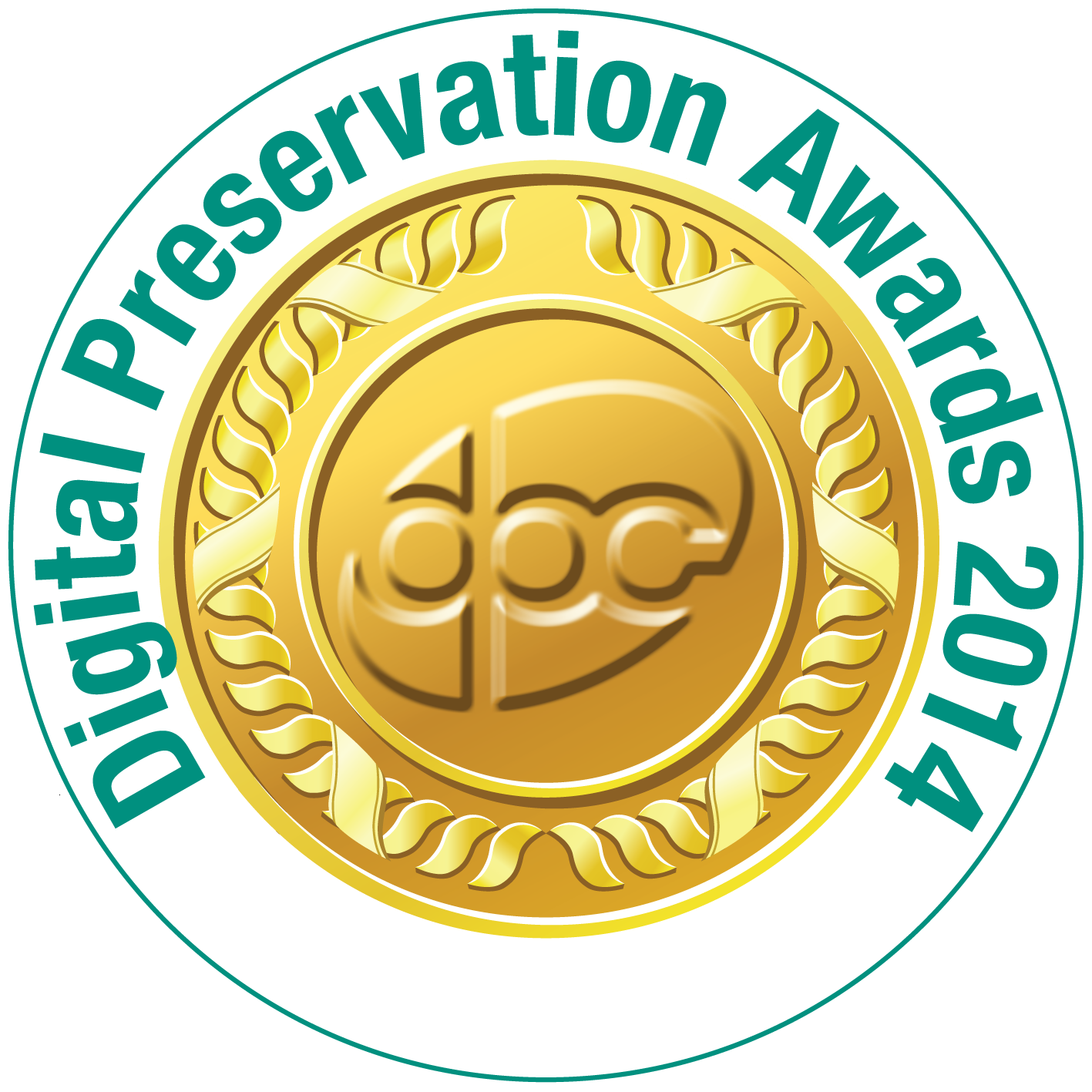 The DPC is delighted to introduce the finalists for the Digital Preservation Awards 2014.
The DPC is delighted to introduce the finalists for the Digital Preservation Awards 2014.
Created in 2004 to raise awareness about digital preservation, the Digital Preservation Awards are the most prominent celebration of achievement for those pe ople and organisations that have made significant and innovative contributions to ensuring our digital memory is accessible tomorrow. ‘In its early years, the Digital Preservation Award was a niche category in the Conservation Awards’, explained Laura Mitchell, chair of the DPC. ‘But year on year the judges have been impressed by the increasing quality, range and number of nominations.’
‘I’m delighted to report that, once again, we have had a record number of applications which demonstrate an incredible depth of insight and subtlety in approach to the thorny question of how to make our digital memory accessible tomorrow.’
In 2014 the judges have shortlisted thirteen projects in four categories for the Digital Preservation Awards 2014:
The OPF Award for Research and Innovation which recognises excellence in practical research and innovation activities.
- Jpylyzer by the KB (Royal Library of the Netherlands) and partners
- The SPRUCE Project by The University of Leeds and partners
- bwFLA Functional Long Term Archiving and Access by the University of Freiburg and partners
The NCDD Award for Teaching and Communications, recognising excellence in outreach, training and advocacy.
- Practical Digital Preservation: a how to guide for organizations of any size by Adrian Brown
- Skilling the Information Professional by Aberystwyth University
- Introduction to Digital Curation: An open online UCLeXtend Course by University College London
The DPC Award for the Most Distinguished Student Work in Digital Preservation, encouraging and recognising student work in digital preservation.
- Voices from a Disused Quarry by Kerry Evans, Ann MacDonald and Sarah Vaughan, University of Aberystwyth and partners
- Game Preservation in the UK by Alasdair Bachell, University of Glasgow
- Emulation v Format Conversion by Victoria Sloyan, University College London
